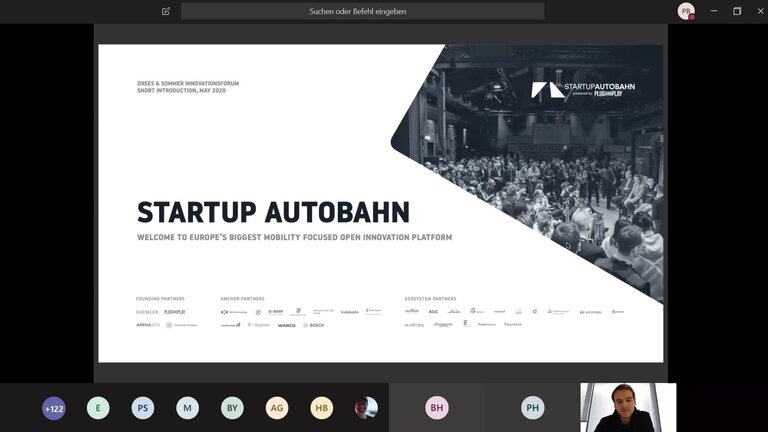No matter whether you consider the dotcom bubble in 2000 or the Lehman insolvency in 2008 with all its global consequences, this is not the first time that a crisis has caused difficulties for the German startup scene. On May 6, the Drees & Sommer innovation forum Silo? Network? Ecosystem! dealt with the impact of corona on startups and their ecosystem, as well as asking what opportunities for new business models are opened up. More than 250 participants dialed into the digital conference to learn more about promising collaboration models in relation to innovation and the status quo of German startups.
Around 80 percent of German startup companies currently see their survival under threat, according to a recent survey by the German Startups Association. Yet an economic downturn needs innovations. Cooperation with startups in particular has proven itself as the driving force. ‘The key to this is a functioning ecosystem. Less bureaucracy, reinforcement of the entrepreneurial spirit, better availability of venture capital and a tax system that favors venture capital providers – these are all major aspects,’ said Michael Aechtler, Head of Innovation Services at Drees & Sommer. He also believes that strategic partnerships are especially indispensable. ‘A marketable idea rarely manages to succeed on its own. A more promising scenario is where the startup’s vision goes hand in hand with the expertise of established companies and institutions,’ the expert explained.
Startup Autobahn: Bringing Together Founder Spirit and Industry Expertise
In his fascinating presentation, Startup Autobahn co-initiator Raymond Chow from Daimler explained how to combine founder spirit with industry expertise and why, in relation to digital processes or artificial intelligence, collaboration with startup companies greatly accelerates development. In a 100-day program, for example, Startup Autobahn offers young startups access to established companies, he added.
His colleague David Neef from Plug & Play and Partnership Director at Startup Autobahn explains: ‘We are looking for pioneers who want to break down barriers and turn ideas into innovations and products. For their part, startups benefit from being able to develop their products under real market conditions and proving themselves with their first clients.’ In this way, bringing creative new companies together with experienced experts from established industrial companies should combine the best of both worlds. ‘Our aim is to create an ecosystem with global reach. To do so, we are continuously expanding the search field within the global startup scene, together with various industry partners. We are also promoting technologies beyond the automotive industry,’ said David Neef.
Investor Appeal for Real Estate Investments Must Be Expanded
The construction and real estate industry has also long since discovered young company founders for itself. PropTechs, as real estate startups call themselves, are applying more and more pressure to traditional property companies, especially by introducing innovative digital technologies. ‘Most companies are seeking contact with the startup scene, albeit with subdued willingness to invest, which is further limited by the corona crisis. Startups are chiefly brought on board in the areas of Big Data, Internet of Things or Artificial Intelligence,’ said Michael Aechtler.
Nikolas Samios is an acknowledged expert on the aspects that startups need to consider if they want to survive in real estate markets. He is Managing Partner of PropTech1 Ventures, an investment fund specializing in startups engaged in digital real estate processes. His proposition is that, going forward, PropTechs will not only have to demonstrate that use of their technologies pays off. They must also prove themselves as sustainable. A sustainable innovation strategy will sooner or later become a question of survival.
